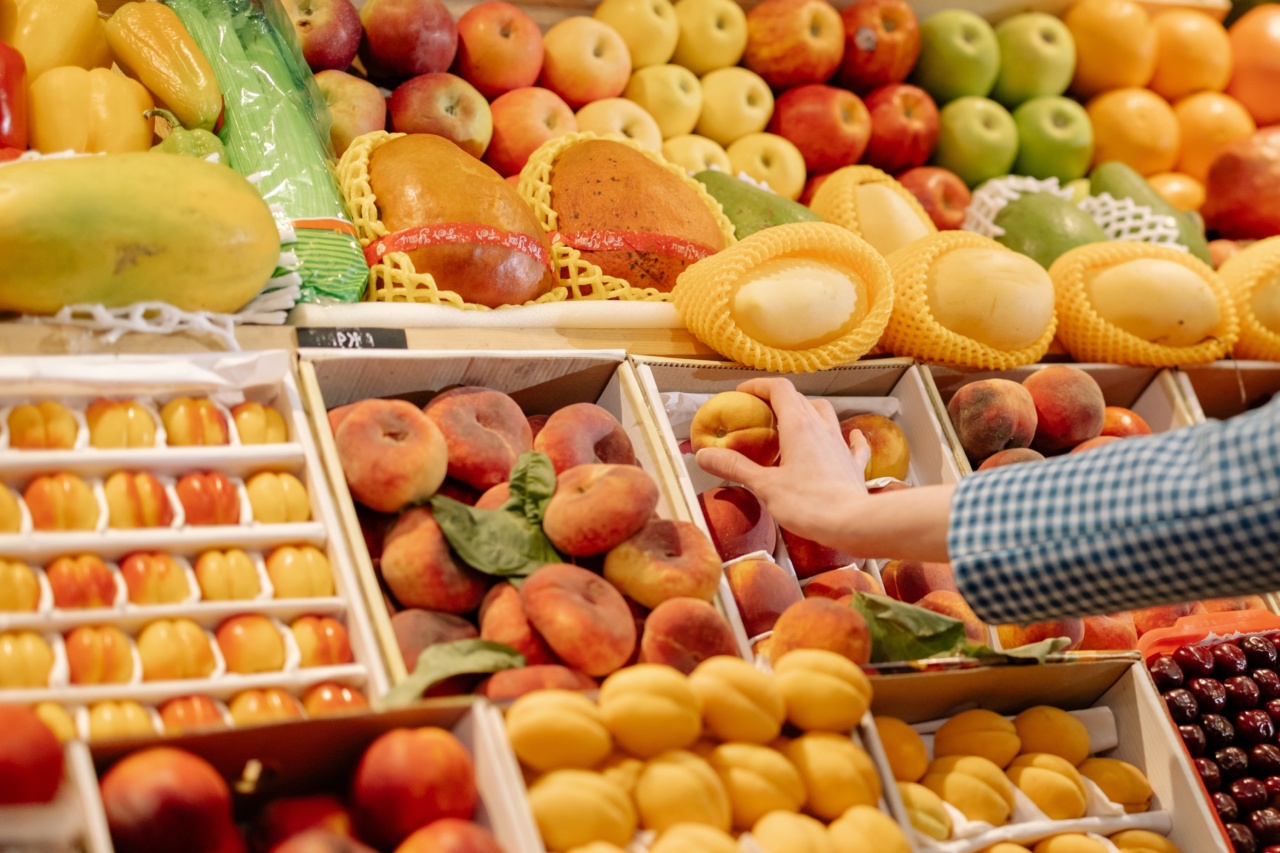When it comes to purchasing fruits, vegetables, and other food items, the debate between fresh and frozen is a common one.
While frozen food offers convenience and a longer shelf life, there are several reasons why buying fresh is ultimately a better choice. In this article, we will explore the various benefits of choosing fresh produce over its frozen counterparts.
Fresher Taste and Better Nutritional Value
One notable advantage of buying fresh produce is the superior taste it offers. Fresh fruits and vegetables are often at their peak flavor, providing a burst of natural sweetness or tanginess that can elevate any dish.
On the other hand, frozen produce may lose some of its taste during the freezing and thawing process.
Furthermore, fresh produce tends to have a higher nutritional value compared to frozen options. Vitamins, minerals, and other beneficial nutrients gradually diminish over time, and freezing can accelerate this process.
By opting for fresh fruits and vegetables, you ensure that you are obtaining the maximum nutritional benefits.
Supporting Local Farmers and the Economy
Choosing fresh produce supports local farmers and the economy at large.
By purchasing from farmers’ markets or local producers, you help sustain small and medium-sized farms, promote agricultural diversity, and contribute to the economic growth of your community. Buying fresh means your money goes directly to those who have put in the hard work to grow and harvest the food you enjoy.
Reduced Environmental Impact
Many frozen food products require additional energy for processing, packaging, and transportation. This contributes to greenhouse gas emissions and puts additional strain on the environment.
In contrast, choosing fresh produce often results in a lower carbon footprint since it typically requires fewer resources to reach your table. Additionally, local sourcing of fresh produce means reduced transportation distances and a decrease in associated emissions.
Enhanced Culinary Flexibility
Fresh ingredients provide a wide range of culinary possibilities. The textures and flavors of fresh fruits and vegetables are often more versatile, allowing for various cooking techniques and creative recipes.
Whether you want to enjoy a crisp salad, create your own homemade salsa, or experiment with new flavors, fresh produce offers endless opportunities to elevate your cooking.
Greater Control over Quality and Pesticide Use
When buying fresh produce, you have the advantage of carefully examining its quality before making a purchase. You can visually inspect the fruits and vegetables, feeling their firmness and assessing their ripeness.
This level of control allows you to select the best-quality produce and avoid items that may have blemishes or signs of deterioration.
Furthermore, by choosing fresh, you have greater control over the pesticides used on your food.
While some frozen produce is also pesticide-free, the ability to choose organic or locally grown fresh produce minimizes exposure to potentially harmful chemicals. This control over the quality and pesticide use is particularly important for individuals who are more health-conscious or have specific dietary needs.
Supporting Seasonal Eating
Opting for fresh produce allows you to embrace seasonal eating, which offers numerous benefits. Seasonal fruits and vegetables tend to have a higher nutritional value due to their freshness.
They are also more readily available, abundant, and often less expensive compared to out-of-season produce that needs to be imported or grown in controlled environments.
Seasonal eating also introduces variety into your diet, as different fruits and vegetables thrive during different times of the year.
Embracing the flavors of each season can make your meals more interesting and enjoyable while also supporting local farmers who grow these seasonal crops.
Reduced Packaging Waste
Frozen food often comes in excessive packaging to maintain its quality during transportation and storage. This results in significant amounts of waste that end up in landfills.
By purchasing fresh produce, you can significantly reduce packaging waste, especially if you bring your own reusable bags to the grocery store or farmers’ market.
Lower Risk of Consuming Contaminated Food
While proper food safety measures are usually followed during the processing of frozen produce, there is always a slight risk of contamination. The freezing process itself may kill some bacteria, but it cannot eliminate all potential pathogens.
On the other hand, fresh produce allows you to handle and wash the items thoroughly, reducing the risk of foodborne illnesses.
Supporting Culinary Education and Creativity
Fresh produce is an excellent tool for culinary education and creativity, particularly among children.
By involving kids in the process of selecting and preparing fresh fruits and vegetables, you can develop their understanding and appreciation for healthy eating habits. The vibrant colors, textures, and flavors of fresh produce make it more appealing and exciting for children to get involved in the kitchen.
Conclusion
While frozen food certainly has its place in our busy lives, choosing fresh produce comes with numerous advantages.
The fresher taste, higher nutritional value, support for local farmers and the economy, reduced environmental impact, increased culinary flexibility, greater control over quality and pesticide use, promotion of seasonal eating, reduced packaging waste, lower risk of consuming contaminated food, and support for culinary education and creativity are all compelling reasons to opt for fresh over frozen. By making the conscious choice to buy fresh, you not only enhance your own well-being but also contribute to a more sustainable and vibrant food system.




























